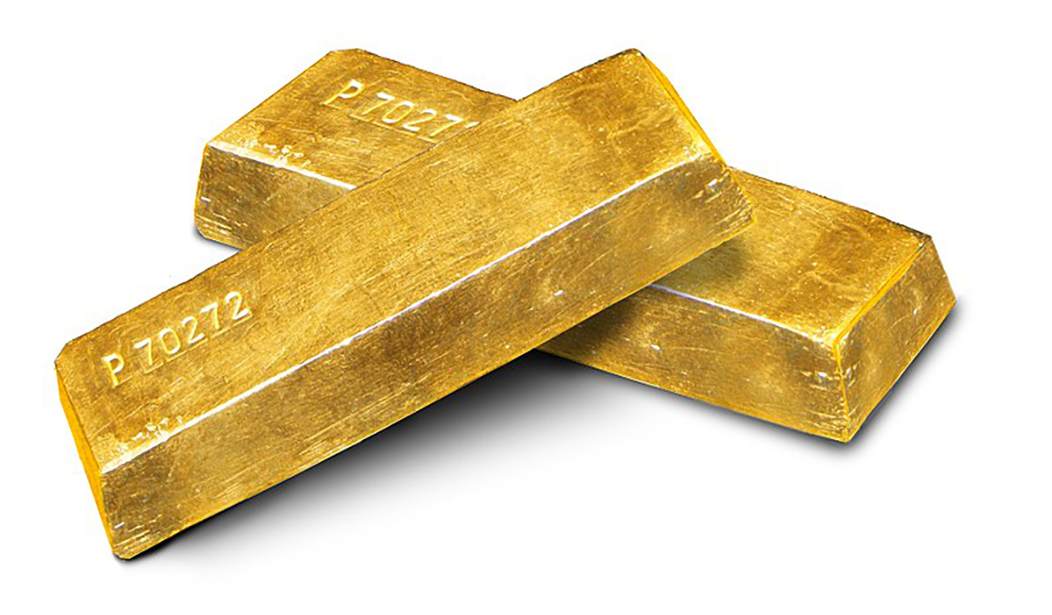Diamonds may be a girl's best friend, but if the currency collapses, gold may be everybody's treasure—that is, unless things really go south.
Is buying gold a good hedge against a major financial crisis? As with so many things, the answer is "that depends." Morningstar's John Rekenthaler has some thoughts. Not surprisingly, so do I.
Last month, The Wall Street Journal published an article entitled “When Markets Get Scary, Mom and Pop Buy Gold.” (The Journal’s print version carries the more sober headline of “Individual Investors Seek Safety in Gold.”) Underlying the piece was the news that for the first time 10 years, Gallup poll respondents preferred gold to stocks when asked to name “the best long-term investment.”
As gold has returned less than equities over the past 10, 20, 30, 40, 50, 60, 70, 80, 90, and 100 years, counting both domestic and international stock markets, one can interpret that answer as indicating either that the public believes that mainstream investments will soon collapse, or that, though it sacrifices total-return potential, gold offers a level of protection that stocks lack. The Journal’s author favored the latter, which strikes me as the correct choice.
Here's my concern: What kind of collapse are we talking about?
In the event of a Weimar Republic/Zimbabwe-type hyperinflation, gold would be a pretty good hedge against the collapse of a currency. Since time immemorial, gold has always been money, partly because of its scarcity but also because of its malleability, which makes it easy to work, and, of course, because it doesn't rust or corrode like other metals. But gold has also always been money because of societies that were stable enough to allow for the luxury of having gold mean something. Even the Sumerians and other most ancient civilizations valued gold, after all—but they also valued grain. You can not, after all, eat gold. More on that in a moment.
What about in the event of a significant societal collapse? Will gold get you through, not a fiscal crisis, not a hyperinflation event, but a no-s*** society-ending mega-collapse?
Mr. Rekenthaler has this to say about that:
I have no chart for the third and final assessment: how gold performs when the normal investment rules no longer apply, such as during bouts of total war or hyperinflation. Not only have such calamities rarely troubled developed countries over the past century, but when they have, gold’s barter rate has not often been documented. The data permits only guesswork.
However, based on anecdotal evidence—including my mother-in-law’s experience as a World War II refugee, when she survived on meals purchased with gold coins from her mother’s attic—I will grant gold its due. Should complete disaster strike, gold should prove superior to both paper dollars and electronically stored cryptocurrencies. Sometimes, tangible assets beat intangible promises.
People have survived hyperinflations and total wars before, and yes, a supply of gold and silver would be a good hedge against these events. And it is those events, granted, that we may well be facing in the near future, at least if Democrats retain any control over monetary and fiscal policy. Here at RedState, the Heartland Institute has recently weighed in on the possibilities of social, economic, or fiscal crises hitting the United States in the near future. It's a possibility we should all be concerned about.
But what about when the malodorous assimilated residue of the digestive process really impacts the oscillating air-movement device?
While I still find the odds of a really major civilization-ending event unlikely, I also wouldn't say it's impossible. The developed world is undergoing a major demographic crisis right now. The implications of that alone are significant; aging populations with reduced younger generations could well result in a global collapse of markets, supply chains, and transportation of goods; in other words, a major threat to civilization itself. The future belongs to those who show up for it, and the developed countries of the world, from Germany to the United Kingdom to Russia to Japan and to China, increasingly just aren't showing up for it.
Add to that witch's brew the ending of the Pax Americana that has held sway since the end of the Cold War; the current presidential administration seems determined to reduce our military to redundancy, and it sure looks like they are succeeding.
It's not my intent to be the stormy petrel of RedState, but these are issues that have weighed on my mind much of late; we have children and grandchildren, and I'm concerned about the world we are leaving them.
So, back to gold. Gold (and other precious metals), as Mr. Rekenthaler points out, are good hedges against economic crises. If you can buy a pound of potatoes with an old silver quarter instead of a wheelbarrow full of fiat dollars, that may well be life-saving.
But in a civilization-ending event? In such a case, people with stocks of gold may well be melting their gold down into fishing sinkers; at that extreme, gold is literally worth its weight in lead. In such a case, the most valuable precious metals will be blued steel, brass, and lead. That's a possibility worth preparing for. Gold is great, gold is stable, gold is and has been money, but if it comes down to survival, you need first to be able to eat and to protect yourself and your family.
This seems appropriate.















